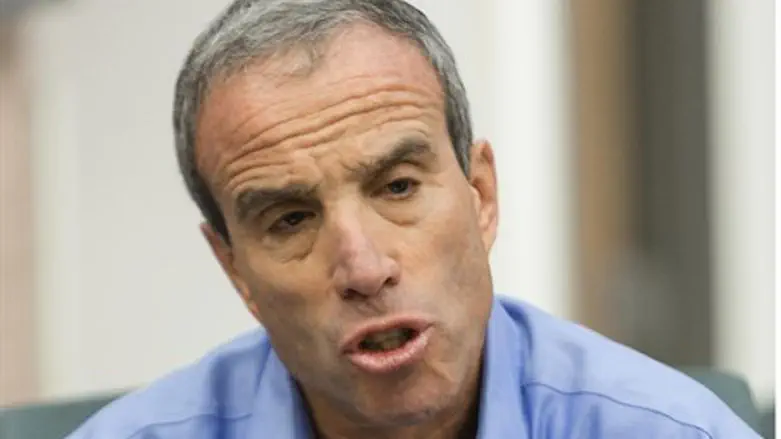
The Knesset coalition, which already has been showing signs of a crisis amid talks of an imminent change in coalition structure, appears set to face a breaking point with an upcoming radical bill that would change the laws of Shabbat observance in the Jewish state.
MKs Ruth Calderon (Yesh Atid) and Elazar Stern (Hatnua) plan to submit the controversial bill, which is entitled "Shabbat in the public space" and was revealed to Yedioth Aharonoth, in the Knesset's upcoming winter session.
The bill is likely to be fiercely opposed by MKs from the Jewish Home party, as well as some more conservative Likud MKs, and could test the durability of the current coalition.
The new bill would give authority to determine whether public institutions remain open on Shabbat to local authorities and municipalities, removing such authority from Interior Minister Gideon Sa'ar who has opposed businesses being open in Tel Aviv on Shabbat.
According to the bill, local authorities would be able to decide whether cultural centers such as museums, theaters, restaurants and cafes could remain open in violation of the Shabbat.
Current Israeli labor laws forbid employing workers on Shabbat without special permission from the Economics Minister.
The new bill proposes two new changes in this context, one being the granting of power to local authorities to set a limited framework of opening supermarkets and pharmacies on Shabbat under the approval of the Interior Minister.
The other major change is that cultural institutions, including restaurants and cultural centers, would be given a free hand to determine whether or not to desecrate the Shabbat without ministerial intervention, a radical change that is likely to raise an intense political debate.
In the new bill, public institutions would remain closed on Shabbat aside from those related to health and security. On the other hand, theaters, museums, national parks, zoos and the like would be allowed to remain open on Shabbat.
Likewise public transportation would be allowed on Shabbat through grantees that receive authorization by the Transportation Ministry. However, the bill determines "free transportation must not be harmed," demanding that the Transportation Minister be forced to explain any decision not to grant authorizations to violate the Shabbat.